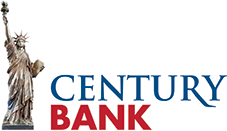Newsletter/Beware of COVID-19 Scams

Beware of COVID-19 Scams
By Linda Garcia, Security Officer and Consumer Electronic Banking Manager
Financial institutions of all kinds have seen an enormous increase in online banking usage - more people are using these online services who never have before. Unfortunately, this also presents opportunities for fraudsters to obtain personal information to access your accounts online. Scammers and fraudsters are using our increased anxiety levels because of the COVID-19 pandemic to prey on people’s fears. They are trying to take money, personal information, or both.
The good news is that these scams aren’t much different than what we’ve seen in the past. But this time, these schemes play on our fear of the unknown, financial insecurity because of job or income loss, or even the dread of catching the coronavirus and becoming ill.
The “new” COVID-19 scams popping up now focus on a couple of areas:
Financial
- Faster stimulus payments or immediate loans against the payment
- Quicker tax refunds from the IRS
- Expedited unemployment benefits and work from home opportunities
- Mortgage, credit card or student loan payments or refinancing
- Payday loans, debt consolidation or forgiveness
- Small business funding and loans
- Impersonating banks and utilities and/or claiming accounts are frozen
COVID-19 Specific
- You’ve been fined for breaking quarantine
- You or someone you know has tested positive for coronavirus
- Offers of at-home testing, vaccines or drugs to prevent or cure the disease
Warning Signs
Red flag: Robocalls and emails or texts from unfamiliar or spoofed accounts, or those claiming to be from government agencies.
Red flag: Anyone asking you to take immediate action – giving them personal information, money or both. Your bank or credit card company will never ask for your account, social security number or other personal information in an email or on a phone call that you didn’t initiate.
Red flag: Anyone asking you to send or give money in a way that offers little or no fraud protection – cash cards, gift cards, or wire services. These payment methods are effectively like handing cash to someone.
Finally, if it sounds too good to be true, it probably is.
